Share
Working at ESO
Are you interested in working in areas of frontline technology and in a stimulating international environment? Do you feel your profile matches our requirements? Learn more about our current vacancies and apply online. Read more..
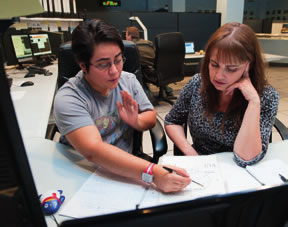
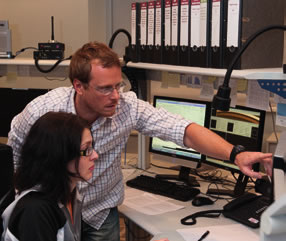

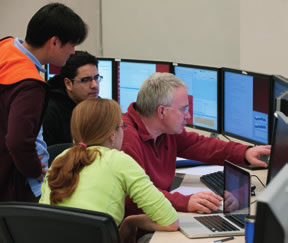
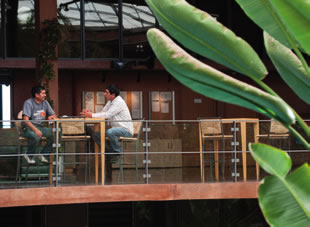

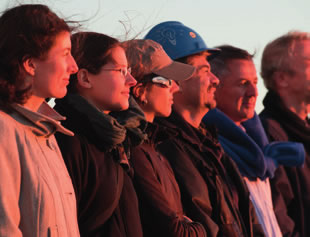

The European Organisation for Astronomical Research in the Southern Hemisphere (ESO) is the foremost intergovernmental astronomy organisation in Europe and the world's most productive ground-based astronomical observatory. ESO carries out an ambitious programme focused on the design, construction and operation of powerful ground-based observing facilities enabling astronomers to make important scientific discoveries.
ESO operates three unique world-class observing sites in northern Chile: La Silla, Paranal and Chajnantor (home to ALMA and APEX), and the ESO Headquarters are located in Garching, near Munich, Germany.
At Paranal, ESO operates the Very Large Telescope, the world's most advanced visible-light astronomical observatory, and will host and operate the southern array of the Cherenkov Telescope Array, the world's largest and most sensitive high energy gamma-ray observatory. ESO is a major partner in ALMA, the largest astronomical project in existence. And on Cerro Armazones, ESO is building the 39-metre Extremely Large Telescope (ELT), which will become "the world's biggest eye on the sky" and whose operations will be fully integrated into the Paranal Observatory.
Within its Department of Communication at its Headquarters in Garching near Munich, Germany, ESO is offering
Internships: Science Journalism 2019
Garching
Deadline 31/12/2019
The Media Relations Team within the Department of Communication is responsible for most of the public outreach activities of ESO. A wide range of programs and activities are used to meet the specific requirements of television, print and online media, such as press releases and broadcast material for the media. The Department of Communication embraces a multimedia approach to public outreach and produces high-quality printed material such as brochures, books, annual reports, newsletters, posters etc.
In ESO's Department of Communication you will work with a team of professional science communicators for the preparation of ESO and ESA/Hubble news and photo releases, publications, web pages, video scripts, exhibition panels and other public communication products.
Through your involvement in various projects and with our support you will have the opportunity to understand and learn:
- About the mission of ESO and the role and responsibilities of the Department of Communication for its implementation;
- How a large international scientific organisation works in practice and in particular what are the workflows, processes and procedures within the Department of Communication;
- How to write about complex scientific issues in an engaging and understandable manner;
- What is required to coordinate big events and projects;
- How written text and audiovisuals can be combined to make science attractive and approachable to the public.
Requirements:
We are looking for people who want to gain experience in science communication of frontline astronomy projects.
You should have some previous experience in written science communication in English and in particular communicating astronomy or other physical sciences to the public. You should also have a knowledge of astronomy that allows you to understand scientific papers. You must be fluent in English both written and oral and have strong MS Office applications skills (Word, Excel, and PowerPoint).
Candidates currently studying or having recently completed a University degree in science, science communication or science journalism, are preferred.
Competences:
You should be able to:
- Provide clear, concise and timely written and oral communications;
- Work under time pressure and deliver to agreed deadlines and standards;
- Work both on your own initiative and as part of a team;
- Build good collaborative working relationships with people from different cultural backgrounds and disciplines.
Internship details:
Internship opportunities are offered throughout the year. The duration of the internship is initially for 3 months up to a maximum of 6 months. We offer a monthly allowance to cover your living expenses and we provide accommodation. We also cover the cost of a return trip from/to your home station. For any further questions please contact vacancy@eso.org.
Application:
If you are interested in our internship opportunities you are invited to apply online at http://jobs.eso.org/. Applications must be completed in English and should include a motivation letter and your CV. Please also upload samples of your work. Applications without samples will not be evaluated.
Applications are reviewed on a bi-monthly basis throughout the year.
No nationality is in principle excluded however, recruitment preference will be given to nationals of Australia, Austria, Belgium, the Czech Republic, Denmark, Finland, France, Germany, Ireland, Italy, the Netherlands, Poland, Portugal, Spain, Sweden, Switzerland and the United Kingdom and, for Chile, to students enrolled in a South American university irrespective of gender, age, disability, sexual orientation, race or religion.
